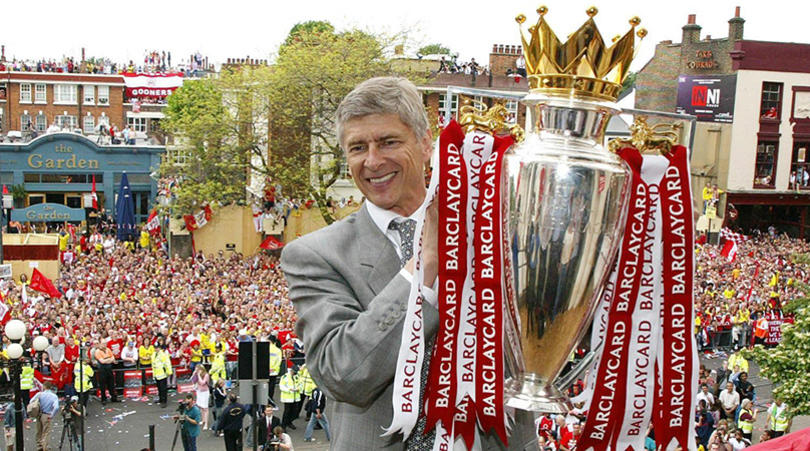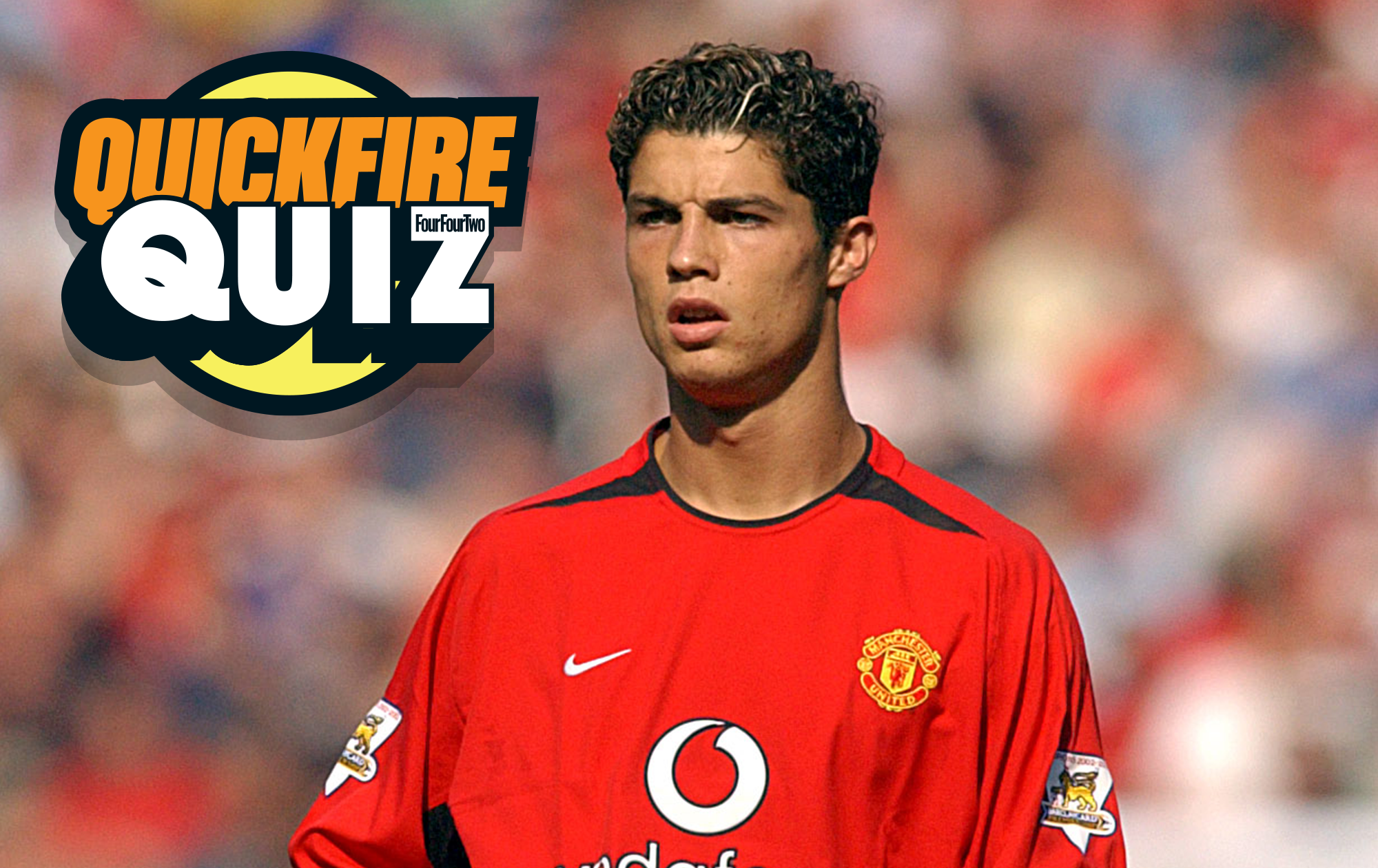Rated! YOUR Premier League club's best and worst player of 2017/18
The top dog and top flop for every team in the top flight this term, brought to you by Seb Stafford-Bloor
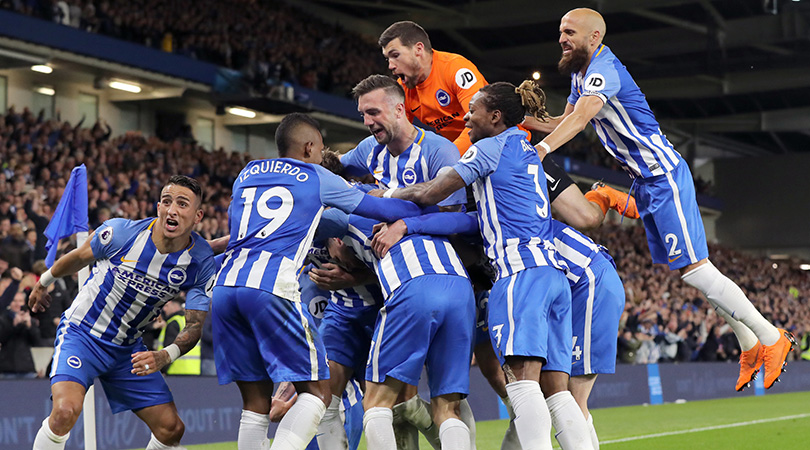
The best features, fun and footballing quizzes, straight to your inbox every week.
You are now subscribed
Your newsletter sign-up was successful
Want to add more newsletters?

Five times a week
FourFourTwo Daily
Fantastic football content straight to your inbox! From the latest transfer news, quizzes, videos, features and interviews with the biggest names in the game, plus lots more.

Once a week
...And it’s LIVE!
Sign up to our FREE live football newsletter, tracking all of the biggest games available to watch on the device of your choice. Never miss a kick-off!
Join the club
Get full access to premium articles, exclusive features and a growing list of member rewards.
Arsenal
Best: Nacho Monreal
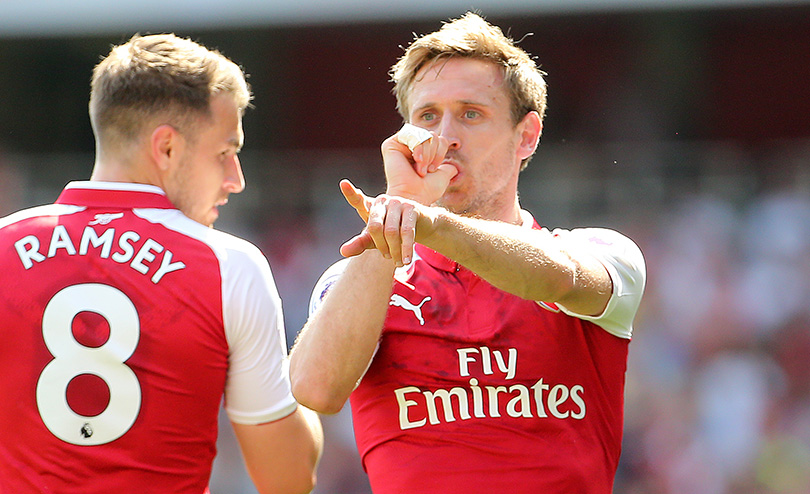
The centre of Arsenal’s defence has been a disaster zone for some time, but Monreal should remain exempt from much of the criticism. Beyond his literal footballing worth, there’s also a spikiness to the Spaniard which these last few Wenger sides could have done with more of over the past few years. He’s a neat player, skilled too, but he’s also an outlier in the sense that he’s one of few in this group who visibly dislikes losing.
Since Wenger pivoted away from his trusty 4-4-2 last year, Monreal has also had to show his adaptability. Over the past year he’s been used as an orthodox left-back, occasionally a wing-back and, most recently, a centre-half. That his form has often been undisturbed by the chaos around him is quite an accolade and he has been one of few Gunners to actually enhance his reputation in 2017/18.
Worst: Shkodran Mustafi
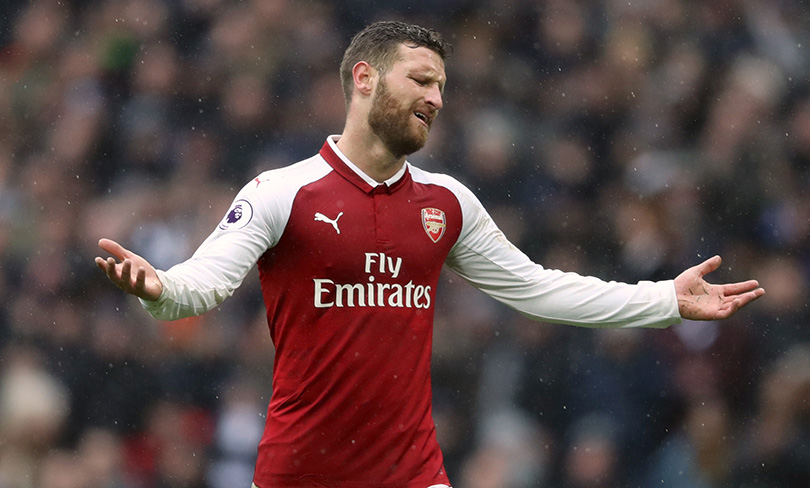
Blunder followed blunder – 2017/18 left English supporters wondering how Mustafi ever won 20 caps for Germany. There may be a case for saying that Arsenal’s defence has long been weakened by its surroundings and, more precisely, the absence of a dependable holding midfielder, but that excuse only goes so far.
It doesn’t, for instance, explain the comedic misjudgement in the League Cup final. Or the ridiculousness of Antoine Griezmann’s equaliser in the Europa League semi. At the critical junctures of Arsenal’s season, Mustafi was unwittingly decisive and, more broadly, the erratic nature of his play appeared to destabilise the entire defensive unit.
The best features, fun and footballing quizzes, straight to your inbox every week.
Bournemouth
Best: Josh King
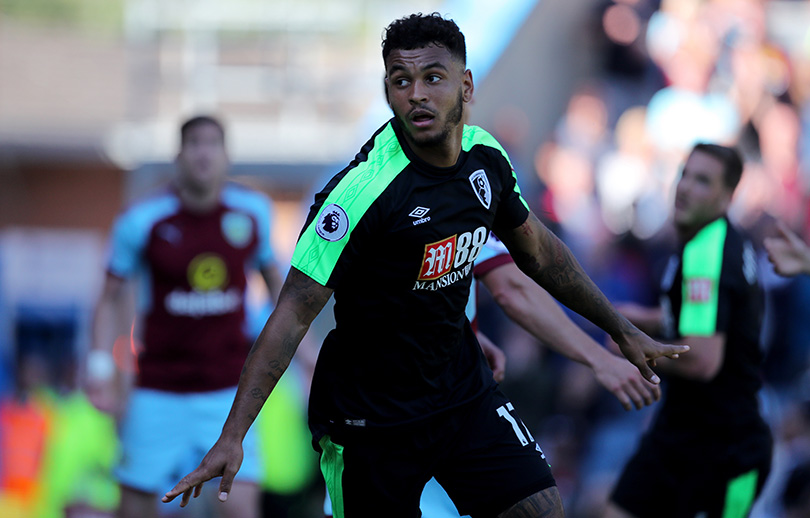
Lewis Cook has frequently been very good – he’s an excellent player in the making – and Nathan Ake has stood out in spite of defensive issues around him, but Josh King’s value to that forward line has probably been worth just a bit more.
King’s game isn’t just about goals. He scored only eight times this season and is nobody’s idea of a prolific forward. Instead, he brings a verticality to Bournemouth which they lack when he’s not on the field, and has a range of movement which the supporting players depend on if the team is to be penetrative.
Worst: Asmir Begovic
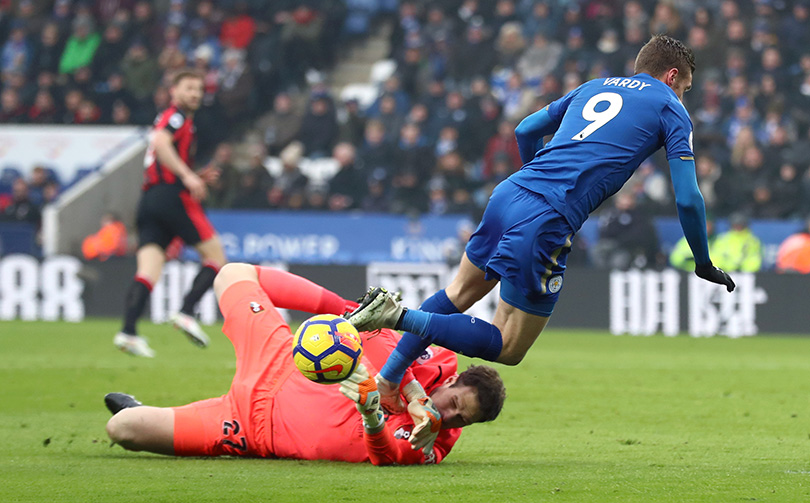
Really, really disappointing. Begovic’s arrival was the most encouraging moment of Bournemouth’s summer, because he promised goalkeeping security that Artur Boruc couldn’t provide. After all, with a more rigid defence, Eddie Howe’s team might have challenged for a Europa League spot this season – particularly so given how weak that part of the league has been.
Sadly not, though. While becoming a back-up keeper at a big club is often presented as a no-loss scenario, spending so long on the Chelsea bench appears to have damaged the Bosnian. A formerly reliable and imposing player has become meek and insecure, with handling errors and soft goals polluting the second half of his season.
Brighton
Best: Pascal Gross
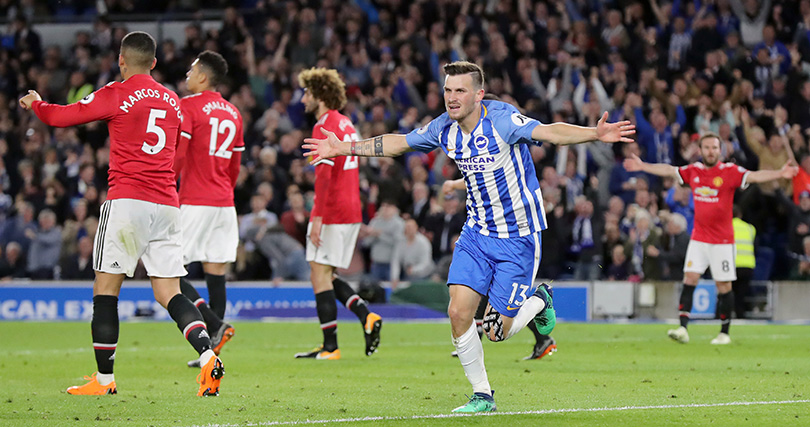
Easy, because Gross was also the finest bargain signing of the season across the entire league (just £3m from Ingolstadt).
Shane Duffy and Lewis Dunk were both close, each outstanding across the whole campaign, but Gross’s creativity and overall class were probably the difference between Brighton struggling manfully against relegation and actually surviving it. His winning goal against Manchester United effectively confirmed their survival too.
Worst: Anthony Knockaert
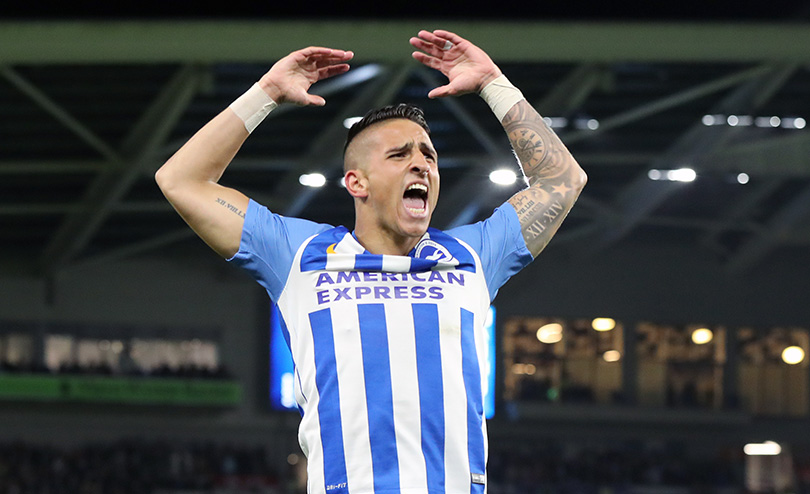
Not bad, just disappointing. Knockaert was so bright and so entertaining last year in the Championship that it was natural – although probably unrealistic – to hope for a breakthrough season. Still, there’s so much more to come from him and hopefully he realises that potential. If there’s another hope, though, it’s that he cuts back on the melodrama.
The Frenchman is prone to going down far too easily and fond of clutching his face at the slightest invitation, and that sense of theatre detracts from his ability. That’s a great shame, too, because his close control and willingness to take players on often makes him tremendous fun to watch.
Burnley
Best: Nick Pope
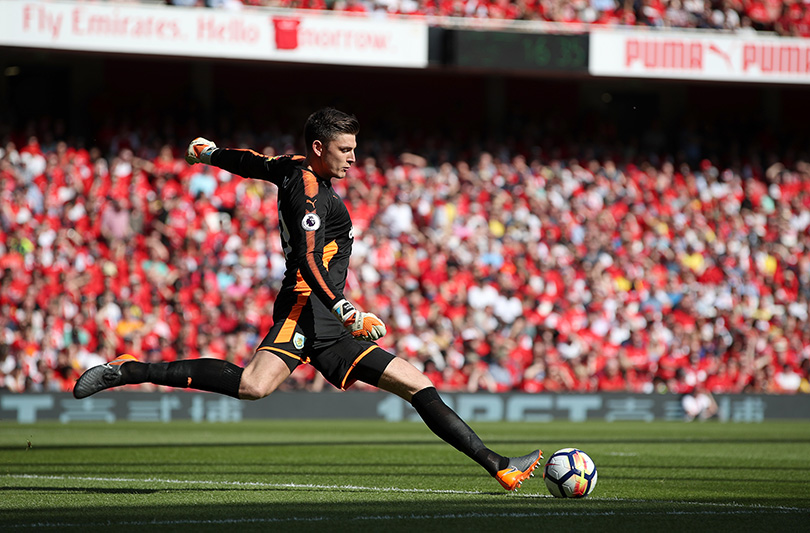
Burnley were hardly short of candidates, but Pope warrants special praise for the challenges he faced and conquered. A couple of FA Cup appearances aside, he spent all of last season on the substitutes’ bench and, prior to that, had never played outside the Football League. Conversely, Tom Heaton had been part of the furniture in Sean Dyche’s defence, and had the relationships and understandings which come with long-term residency.
So for him not to be missed and for Pope to create a conversation about who the better goalkeeper actually is was remarkable. He may not be a high-wire, gravity-defying player, but his hands have been reliable and his reliability under crosses have taken the pressure off a defence which has been tested this season.
In August, nobody knew who Nick Pope was. In June, he’ll surely (surely?) be heading to Russia. What a rise.
Worst: Georges-Kevin Nkoudou
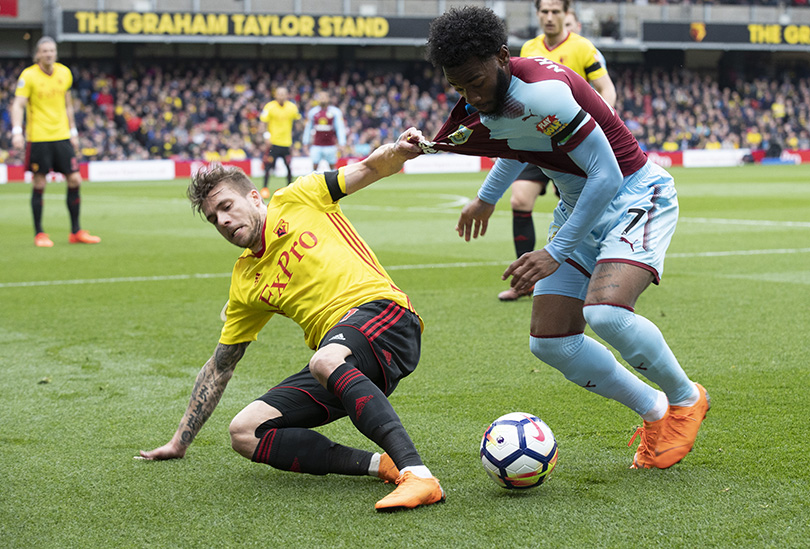
Nope, that didn’t work. Dig deep enough on Google and there are some very interesting stories about how loanee Nkoudou came to be a Tottenham player. Some of the anecdotes also reveal just what a ball-breaking negotiator Daniel Levy is.
Regardless, the Frenchman doesn’t seem to have much of a Premier League future.
Chelsea
Best: N’Golo Kante

Willian warrants a mention, so too Cesar Azpilicueta, but Kante also managed to survive his manager’s great sulk and give a fine account of himself.
Talking of “complete” midfielders is a cliché, perhaps even a lazy way of describing excellence, but he is remarkably rounded. His attacking contribution wasn’t what it was last season, probably because of Alvaro Morata’s issues and the general dysfunction in that part of the side, but his ball-retrieval and distribution make him the one player Chelsea can never be without.
Worst: Alvaro Morata
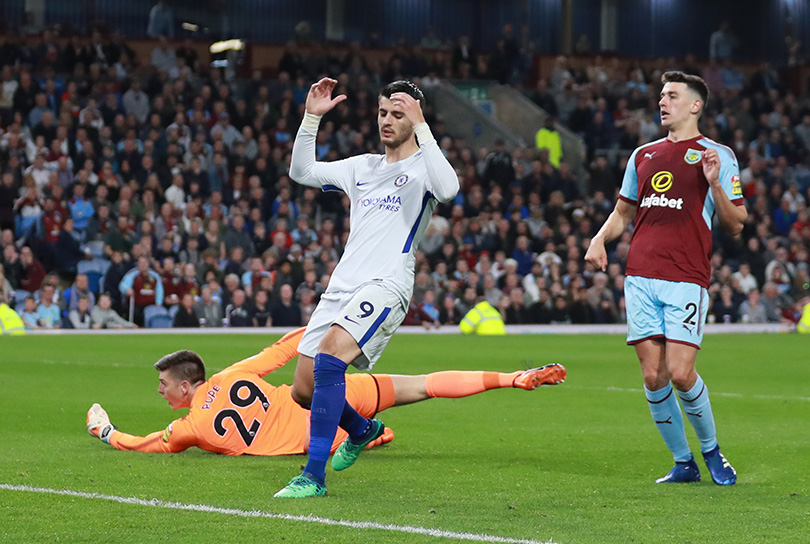
Morata may still improve and he wouldn’t be the first forward to rebound successfully from a fallow first season, but at times the Spaniard has seemed fundamentally ill-suited to Premier League life.
The abilities he does have (sharp anticipation, excellent heading technique) are dimmed by flaws (a willowy frame, brittle self-belief), which prevent them from ever shining as they probably should. A poor season and a reckless transfer from a club that now seems to recruit without rhyme or reason.
Crystal Palace
Best: Wilfried Zaha
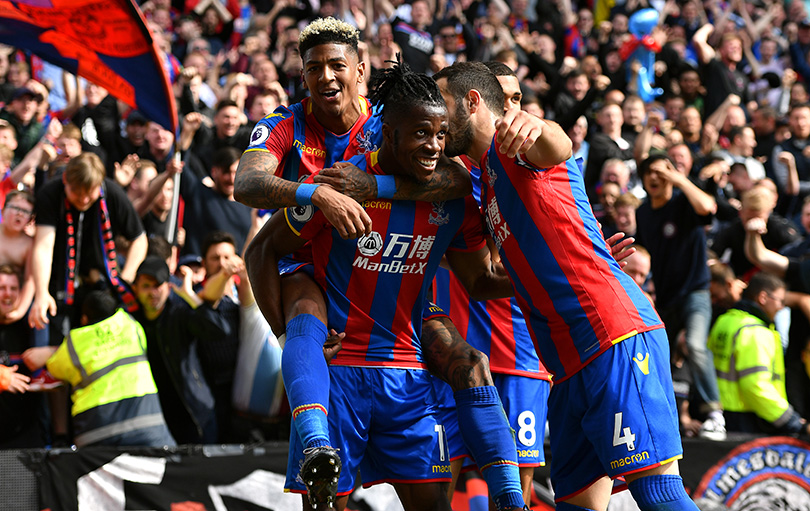
In a category all of his own. Frank de Boer’s Palace team had more than one deficiency, but it’s not a coincidence that such an anaemic spell coincided with Zaha’s absence. Nor, obviously, was it a surprise to see him front and centre of their revival.
The defining factor is not only that obvious threat that he carries and the goals he scores, but how tightly he’s woven into nearly every aspect of his team’s play. Zaha has been the principal goal threat from open play and their most dangerous attacking player, but also Palace’s regular out-ball and a key link between defence and attack. Absolutely outstanding.
Worst: Wayne Hennessey
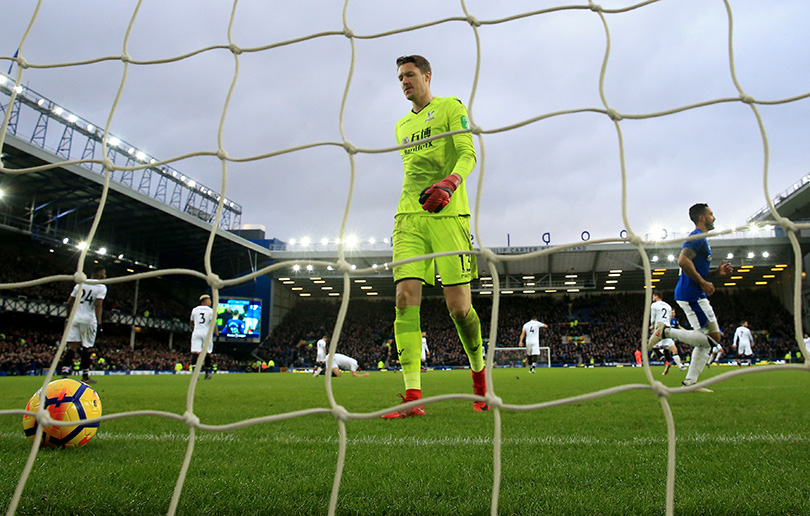
This doesn’t need to be unkind: Hennessey just isn’t a Premier League goalkeeper.
Palace supporters have been frustrated with him for a long time and will tell anyone who listens that their club needs to urgently invest in that position. They’re absolutely right. If Roy Hodgson continues, the improvement of his team must begin with a new goalkeeper.
Everton
Best: Jordan Pickford
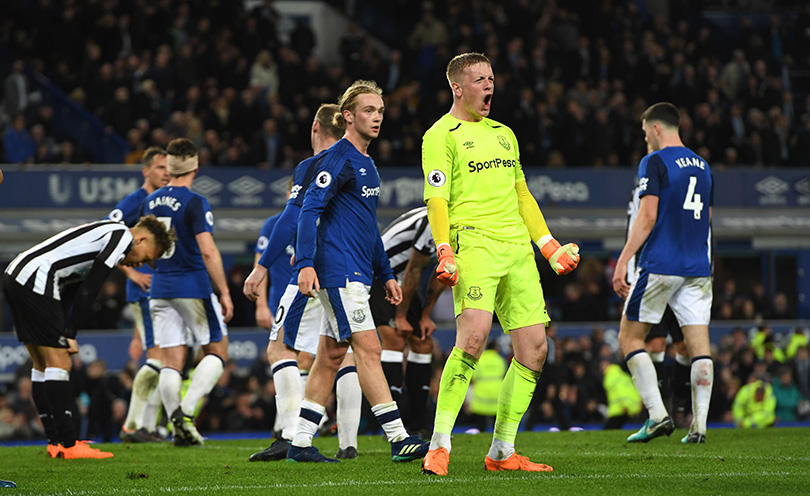
Best? Really, the only notable performer. Dominic Calvert-Lewin had some encouraging moments and Seamus Coleman’s return from injury was certainly welcome, but only Pickford has been a true, consistent asset across the entire season.
Everton are a basket-case squad, ludicrously over-stocked with certain attributes and desperately short of others, and yet Pickford’s form has remained admirably impervious to those issues.
Worst: Morgan Schneiderlin

Just what has happened to him? Most likely, his transfer to Manchester United over-promoted the midfielder and left him so short of confidence that he’s been unable to recover. But then, some of the Goodison Park natives have been frustrated with his application and attitude, too, so there has to be more to the situation.
Michael Keane has been poor, Ashley Williams often calamitous and Sandro Ramirez was obviously a non-event, but all have asterisks against their failure. Schneiderlin doesn’t. He’s not under-talented, he isn’t ageing and immobile, and he didn’t have a cultural adjustment to make.
He and Idrissa Gueye should be one of the best central midfield pairings in the league and yet, although the latter has performed quite well, Schneiderlin has been of almost no consequence.
Huddersfield
Best: Christopher Schindler
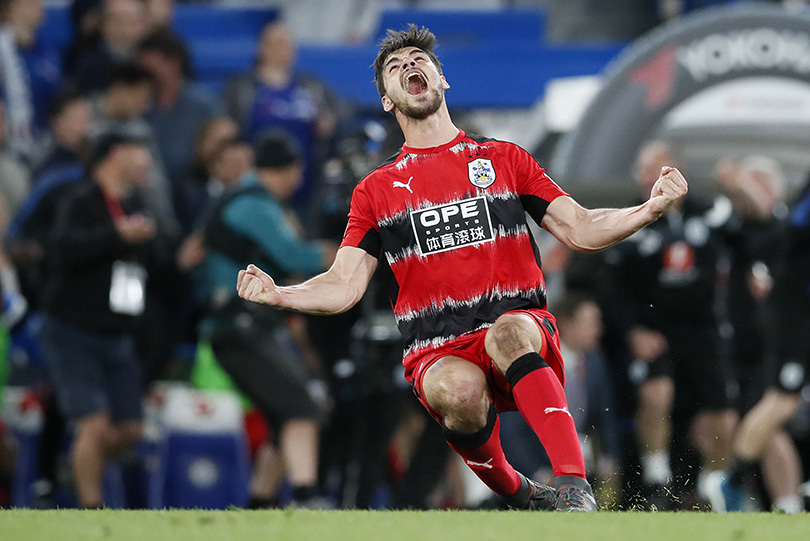
Given the nature of their survival, it’s difficult to isolate a single player. Aaron Mooy is talented and a few others have had encouraging first seasons in the Premier League, but Huddersfield avoided relegation by virtue of their defending as a group.
With that in mind, the light falls on Schindler: present in all but one game (which he missed through suspension) and seemingly the critical organisational piece in David Wagner’s defence. The resistance in those two May games against Manchester City and Chelsea was remarkable at times and the German was, as he had been all season, right in the middle of it.
He’s not an outstanding athlete and isn’t endowed with any dominant attributes, but he is blessed with an understanding for defensive football and that, above anything else, is why Huddersfield are still here.
Worst: Nobody
Wagner was active in the summer and bolder than expected in the transfer market, but there were no major blunders.
Danny Williams was surprisingly ineffective given what he had been for Reading in 2016/17, and Tom Ince looks a long way from the player he was once expected to be, but nobody actually gave a bad account of themselves – or at least not without a reasonable justification.
Leicester
Best: Jamie Vardy
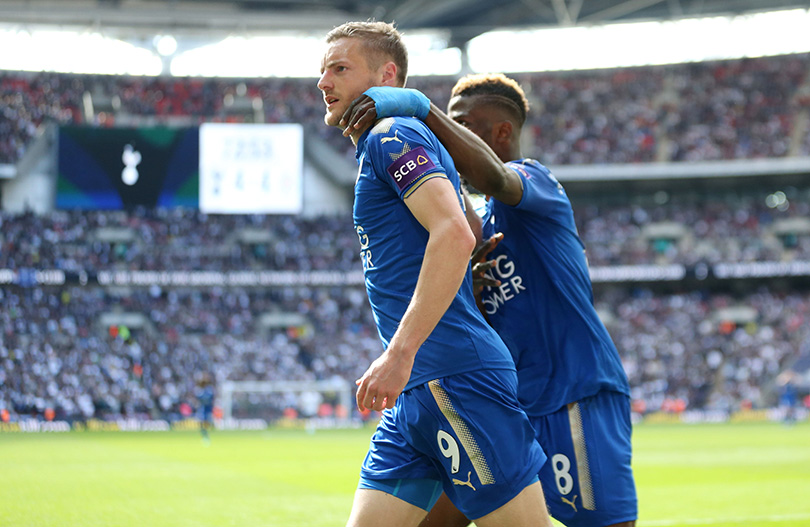
A strange season. As ever when a club changes manager, this year has been fractured and, within that, it’s difficult to identify any consistent themes. Harry Maguire has played quite well, albeit with a couple of nasty moments, and either side of his flounce, Riyad Mahrez also showed class.
Vardy hasn’t had his best season, but his finishing has still managed to evolve and the striker’s goalscoring range has noticeably broadened. For a long time he was assumed to be reliant on space and counter-attacking opportunity, but 2017/18 put that to rest.
His pace was still lethal and key to most of what he did, but Vardy also looked to be a wiser forward. Still a bundle of energy and still playing with that boulder of a chip on his shoulder, but also with a more nuanced understanding of how to score goals. Twenty-three of them, across all competitions.
Worst: Kelechi Iheanacho
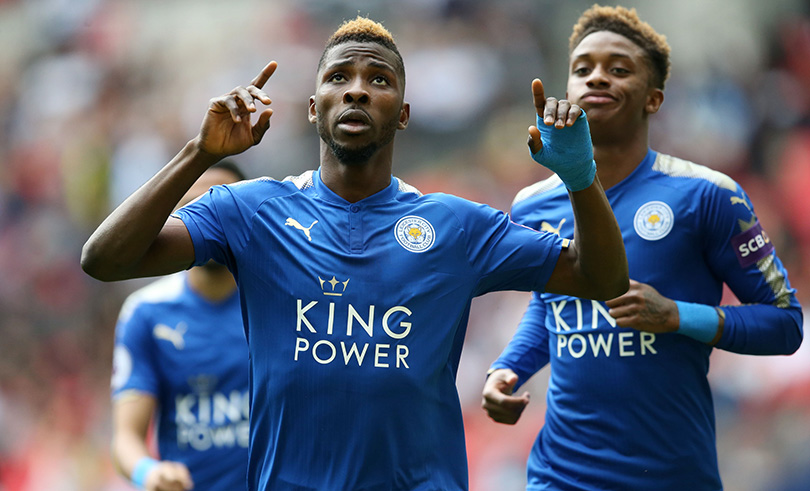
We’ll excuse Wes Morgan his season on account of his age (34) and past achievements, but Kelechi Iheanacho was a crushing disappointment. He has no shortage of ability, as that final day effort against Spurs showed, but three Premier League goals was a meagre return for a player once thought of as a Manchester City forward-in-waiting.
It’s difficult to diagnose why the move hasn’t worked. The £25m fee was certainly large and unhelpful, but Iheanacho hasn’t really been on the pitch enough to be a victim of expectation. Instead, he’s struggled to adapt around the incumbent players and it’s that lack of adaptability which has been concerning. It’s not time to be worried or to declassify Iheanacho – he saved his two best displays for the final two matches of the season – but there’s so much more to the Nigerian than he’s shown. It’s only natural to feel shortchanged.
Liverpool
Best: Mohamed Salah
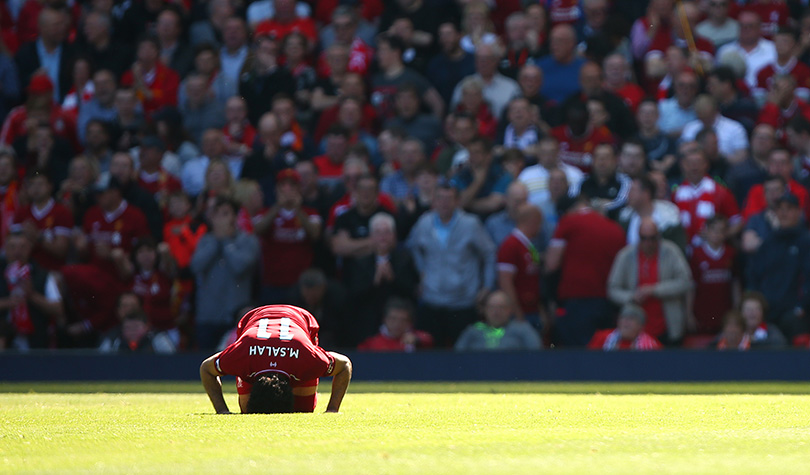
Coincidentally, Salah has actually acquired a Luis Suarez-esque role at Liverpool. He’s a different type of player, but his effect on those around him is very similar. The Egyptian has been excellent individually and the new Premier League goalscoring record is testament to that, but the fractures that style creates in opposing defences have enabled other parts of the team to perform well above their previous level.
Roberto Firmino has been excellent, so too Sadio Mané, and for them now, read Raheem Sterling and Daniel Sturridge four years ago.
Worst: Every centre-half other than Virgil van Dijk
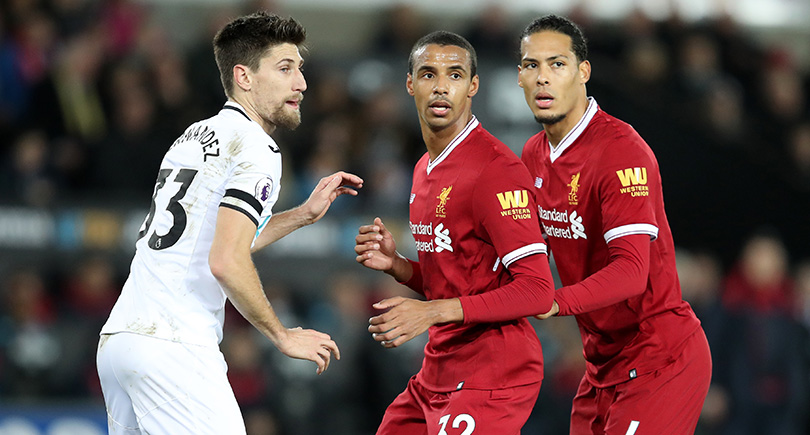
Thank goodness for Salah. Without him, Liverpool would be outside the top four and also nowhere near the Champions League final. More importantly for neutrals, without the Egyptian, the debate around the team’s inability to defend would still be continuing apace. They've improved; Van Dijk has made them better and Andrew Robertson and Trent Alexander-Arnold have both had good seasons.
Centrally, though, all is not well. Dejan Lovren remains hapless and Joel Matip isn’t up to the required standard either – and that’s been shown in some very high-profile games. Whatever the outcome in Kiev, Jurgen Klopp will know that area of his side still needs urgent attention.
Manchester City
Best: Kevin De Bruyne
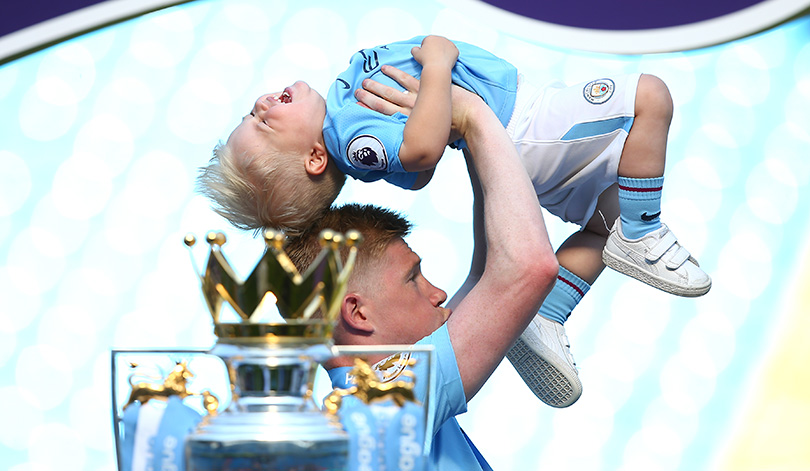
After any other season, De Bruyne would now be decorating his mantel with all sorts of individual awards. Alas, Salah and the richest scoring season in Premier League history have got in the way.
Nevertheless, in spite of Pep Guardiola’s coaching and the array of stars they’re stuffed with, Manchester City wouldn’t be the same without De Bruyne. Salah may have been its top scorer, but the Belgian is the top flight’s most dangerous player.
He evolved in 2017/18, too. No matter in which position he was deployed, De Bruyne brought something different to the role: penetrative running, a broad armoury of passes, or a goal threat from anywhere inside 30 yards. This was the season when the country’s best player went uncrowned.
Worst: Nobody
One hundred points. The most goals scored. The fewest conceded. Some players were more influential than others, but 2017/18 was a collective success which nobody at the club deserves to be separated from.
Manchester United
Best: David de Gea
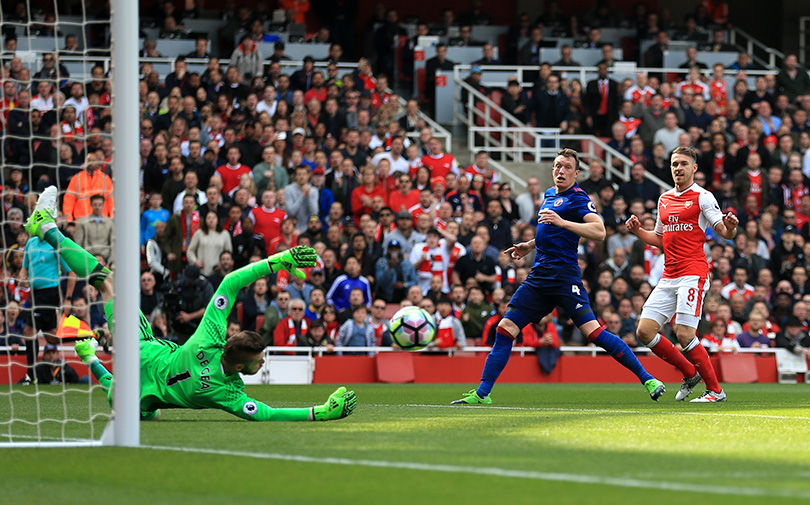
What’s really remarkable about De Gea is not only his consistency, but the range of his form – every season brings a highlight reel different from the last. There are new, better saves, more vivid testament to his agility, and even evidence that his reflexes are growing sharper. 2017/18 was the season in which he became the world’s best in his position.
And thank goodness, because without him, Manchester United and Jose Mourinho would be in trouble. They’re a good team, but not a very good one: vastly inferior to Manchester City and not clearly better than either Liverpool or Tottenham. Imagine how those margins would have been affected had De Gea not be as good as he was.
Worst: Victor Lindelof
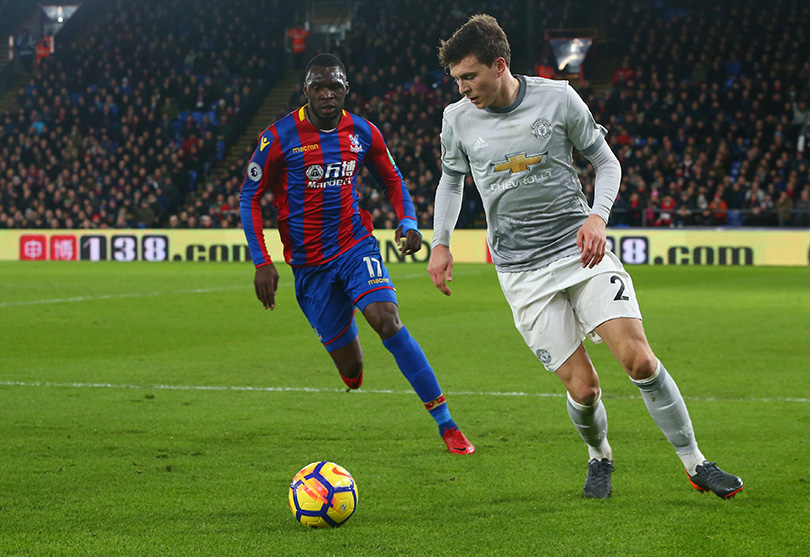
The Swede did actually start 13 times in the league (a prize for you if you remember any of those matches), so wasn’t quite as peripheral as assumed. Still, that was a meagre return given his €35m+ transfer fee and nothing he did this season suggests that he has a long-term future at Old Trafford.
Whenever this kind of thing happens under Mourinho it’s worth deferring judgement. The Portuguese has a history of marginalising players, so Lindelof might just need a different manager. Either way, he certainly requires more exposure if he is to become a reliable asset to Manchester United.
Newcastle
Best: Jamaal Lascelles
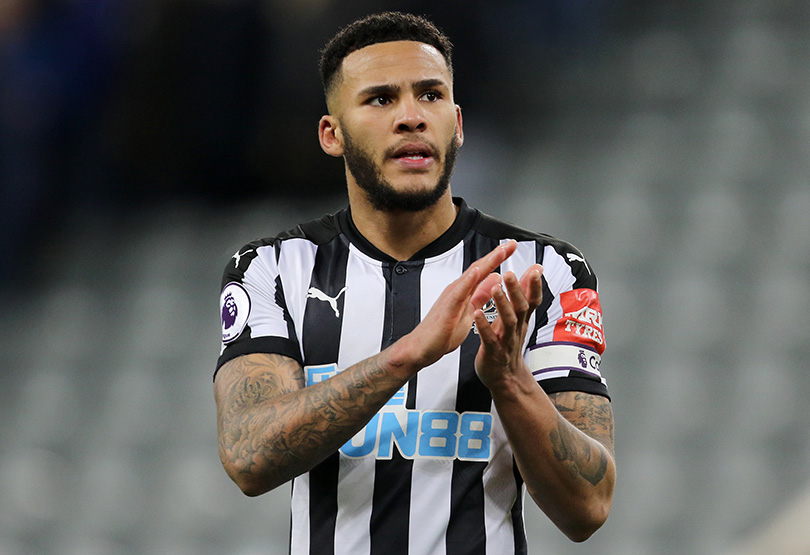
The key to Newcastle’s survival was tone – one which, since he arrived at the club, Lascelles has done more than anyone to maintain. His partnership with Florian Lejeune has been resilient, but what he represents is arguably worth more.
The shadow of Mike Ashley has always been dark, but what often festered within it was much more damaging. Newcastle are the club of SportsDirect naffness and tight spending, but they were also known as much for apathy as anything else.
But this season has been different. Ashley predictably shortchanged Rafael Benitez last summer, leaving him without a credible forward and requiring instead a strict tactical discipline. In essence, Newcastle have survived on their commitment, team spirit and a determination to defeat the odds – all intangibles incubated by their captain.
Martin Dubravka has been excellent since arriving in January and Jonjo Shelvey has finished the season well enough to involve himself in the World Cup discussion, but Lascelles has helped to create the conditions for what has taken place this year.
Worst: Islam Slimani
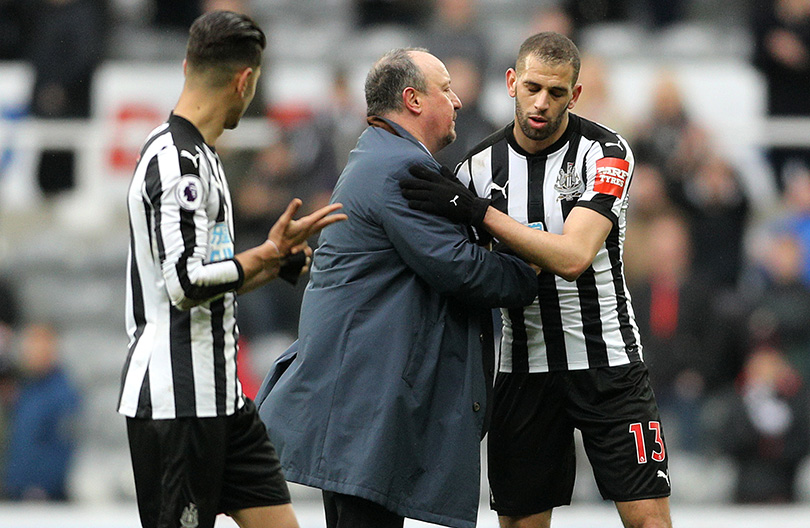
A strange loan. Benitez was always going to be digging in the bargain bins come January, but Slimani was injured at the time of his move and had played so little that he was never likely to gain match fitness before the end of the season.
He played four times in the end, and did make an impact in assisting Matt Ritchie’s winner over Arsenal, but a three-match ban for violent conduct at the end of the season just about summed this one up.
Southampton
Best: Oriol Romeu
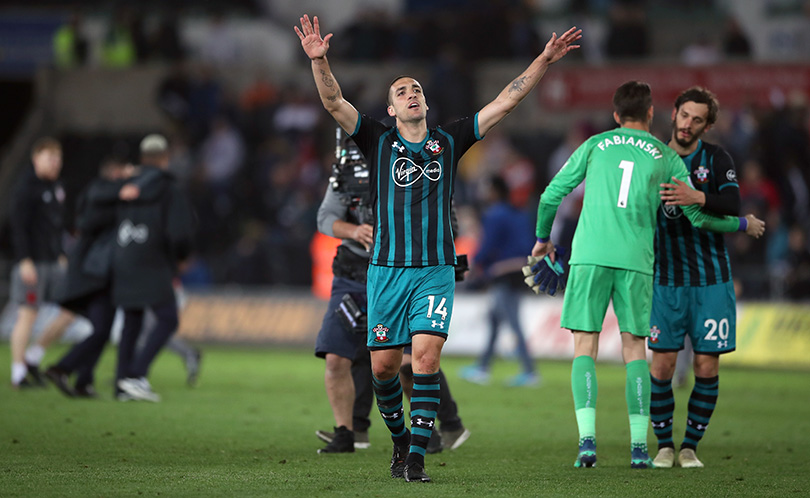
A damning selection, because it illustrates the imbalance in this squad. Romeu hasn’t needed to be outstanding to be his side’s best player, instead rising to the top of the list simply by being competent.
It’s easy to miss his contribution, because his game is predicated on retrieving possession and passing it on to more cultured players. However, with a changing cast of players around, behind and in front of him, he maintained the standards he set last season. Manolo Gabbiadini’s goal at Swansea will be remembered for longer, but Romeu was probably the difference between Premier League and Championship football in 2018/19.
Worst: Fraser Forster
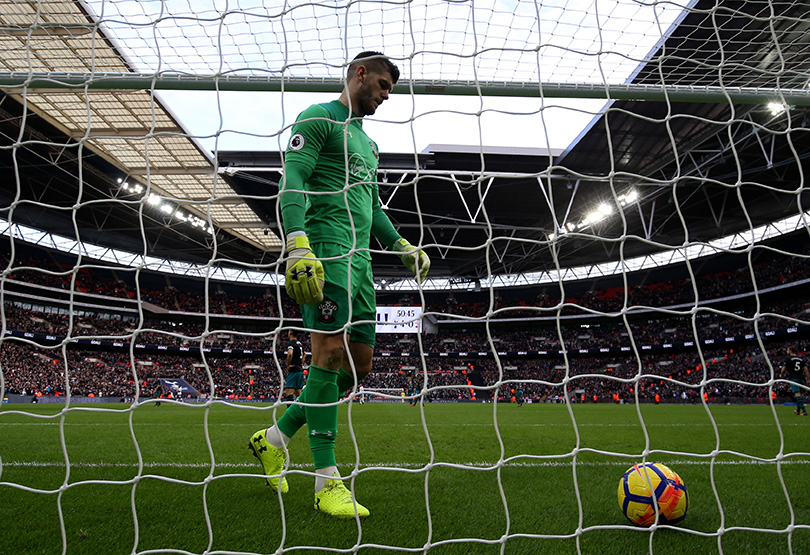
What a disaster. Forster eventually lost his starting job to Alex McCarthy and, when that change happened, it was really just a relief.
A struggling goalkeeper is hard to watch and, having seemingly lost the confidence of his team-mates, his manager and his supporters, Forster had started to look painfully fragile. Worse – McCarthy’s introduction made Southampton instantly more secure and his level of performance was a big part of the club’s survival.
Stoke
Best: Bet365 Stadium groundsmen
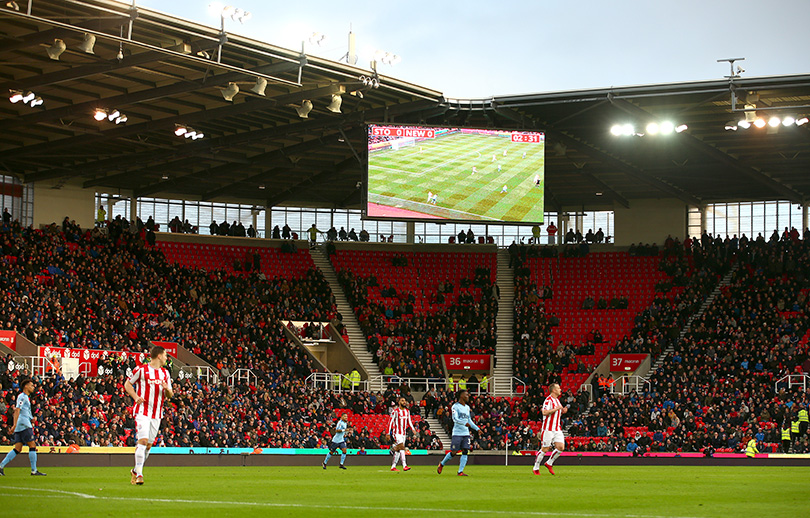
What a lovely pitch. Nice cut, good condition.
Stoke’s headline problem this year was a lack of goals, but that was an issue exacerbated by a raft of additional micro-failings. Jack Butland had a poor year, the defence ahead of him was constantly undermined by forced change, and for much of the season their midfield had only a single gear.
At a stretch, Xherdan Shaqiri posed a semi-regular threat, and Moritz Bauer and Badou Ndiaye have each been relatively impressive since arriving in January, but Stoke’s relegation was a failure drawn from every part of the side. Nobody can really afford to separate themselves from that.
Worst: Saido Berahino
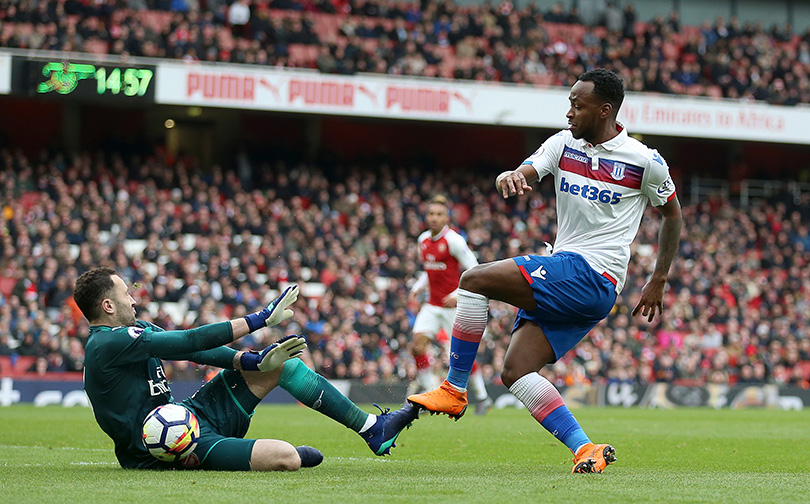
It’s a bit obvious, but still difficult to make a case for anyone else. Let’s be careful here, because this player has evidently suffered psychologically and there’s no need to pile on. But something is fundamentally wrong with Berahino’s career, because a dearth of confidence in itself doesn’t explain its plummeting trajectory.
The lack of goals are a concern – and Stoke could certainly have done with them this season – but the player increasingly looks out of love with the game. It’s troubling and, if he remains at Stoke, hopefully the Football League will offer him the chance of a reset.
Swansea
Best: Lukasz Fabianski
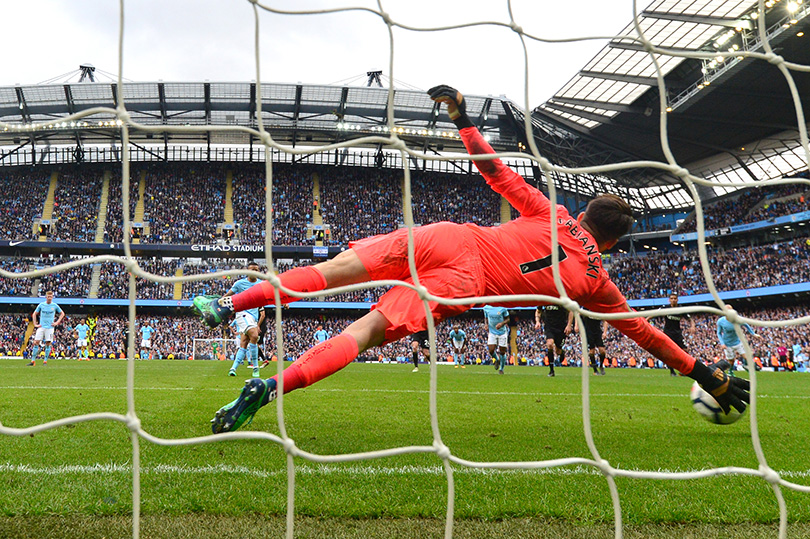
It’s of little consequence, but Swansea’s season would have been considerably worse were if not for Fabianski. Undersized for his position and devalued by that small sample of games at Arsenal, the Pole has completely rehabilitated his reputation with his performances this season – and, to be fair, started to do so the year before.
Swansea are gone, but there was a poetic justice and also some neat symbolism to Fabianski’s futile penalty save on the final day. All too often, he was the only reliable part of this side.
Worst: Renato Sanches
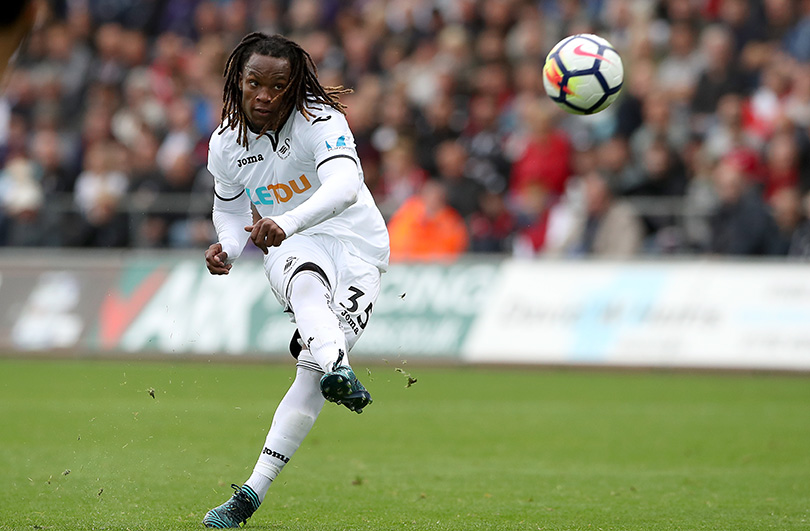
There are reasons for Sanches’s failure and, in hindsight, pinning survival hopes on a teenage player who had never experienced English football and had barely played the year before was absurd. Injuries again restricted his impact and prevented him from settling, but he returns to Bayern Munich without having left any sort of impression.
His career will presumably recover – he’s certainly young enough – but this was one of those transfers in which everybody lost.
Tottenham
Best: Jan Vertonghen
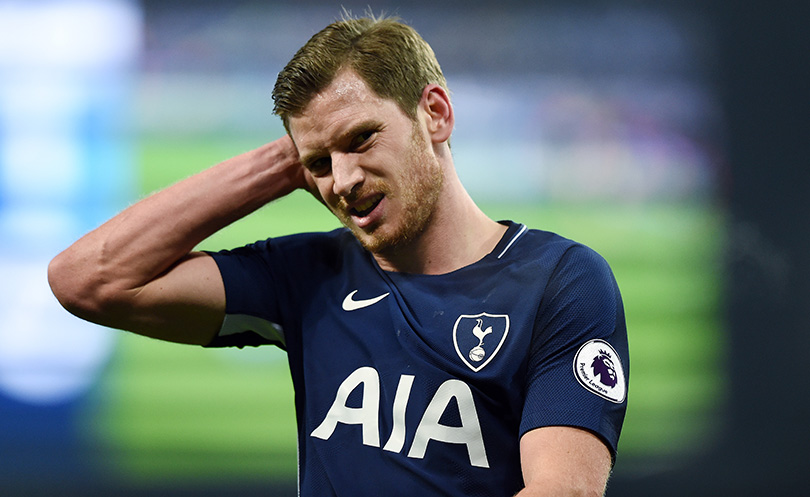
Maybe it’s because of the drama surrounding Toby Alderweireld’s future, but it seems that Vertonghen’s form has passed unnoticed. He was named in the league’s team of the season, but the consensus remains that Tottenham were still without their best centre-half for most of the campaign. They weren’t: Alderweireld is an excellent defender, but Vertonghen is now arguably the division’s best.
Worst: Fernando Llorente
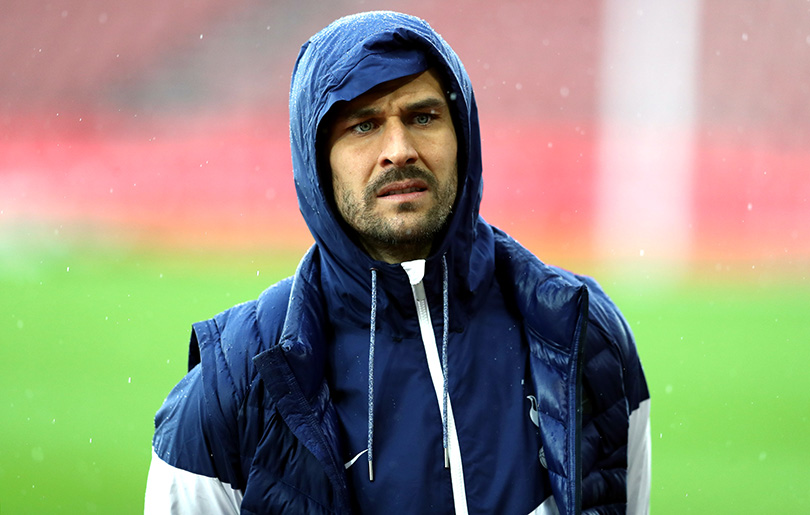
A good idea in principle, but a terrible transfer in reality. Be it his advancing years or a failure to adapt in a new side, none of the strengths Llorente showed at Swansea accompanied him to London.
One Premier League goal (fittingly against his old side) was not the kind of return Mauricio Pochettino was after and, as they were last year and the year before, Tottenham remain on the hunt for an able deputy to Harry Kane.
Watford
Best: Abdoulaye Doucoure

“....never gives the ball away.”
The chant isn’t quite true, but the affection for Doucoure at Vicarage Road is entirely appropriate. Last year’s outsider was reanimated by Marco Silva, and that improvement outlasted the manager. Even when Watford clocked out for the season, Doucoure was still performing at a high level.
True, the Patrick Vieira comparison has always been lazy, but Doucoure has shown the breadth of influence that will certainly make him interesting to bigger clubs this summer. He is Watford’s midfield: a shield for their defence, their most reliable man in possession, and – descriptively – also their top scorer this season.
Worst: Stefano Okaka
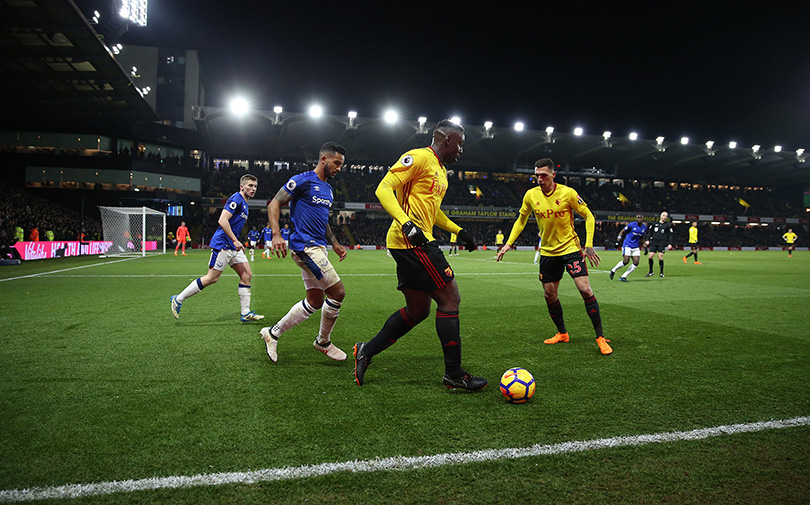
The first day of the season seems a long time ago now, and so does Okaka’s bullying of Liverpool centre-halves in that 3-3 draw.
He didn’t score again. A personality clash with Marco Silva marginalised him from the side, and by January the club were actively trying to loan him to the Championship. Bizarre, because Okaka’s size and shape make him the prototypical Plan B in the Premier League. It’s hard to believe that, under different circumstances, he couldn’t have been an asset during the long, hard winter months when Watford’s form fell through the floor.
Not so much “bad” or “disappointing”, but certainly a confusing situation.
West Brom
Best: Ben Foster
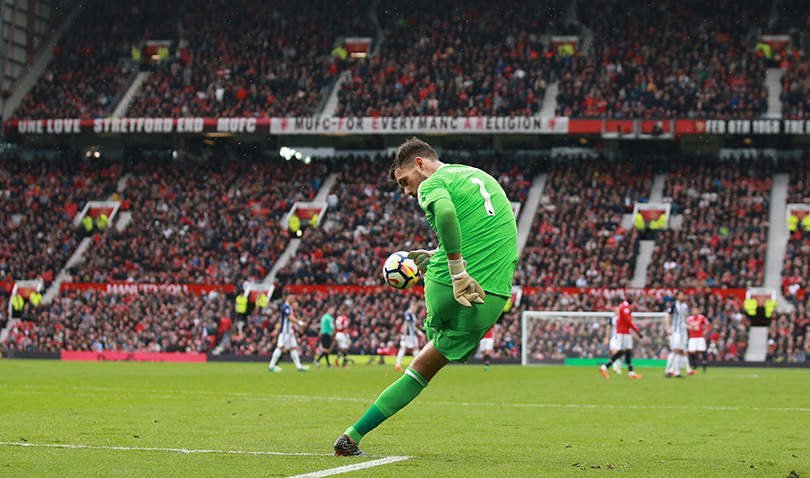
The story around West Brom was so negative for so long that it was easy to miss Foster’s contribution. In recent weeks, he was a hero of the late revival and has attracted praise accordingly, but he’s one of the few players to emerge from this season with a semblance of credit.
He wasn’t excellent in a way which warrants hyperbole, but simply good enough to be excused criticism.
Worst: Gareth Barry
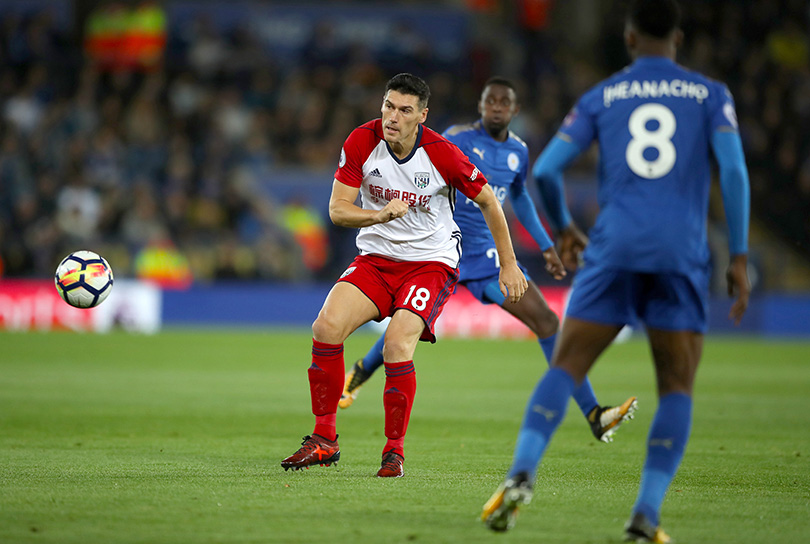
Yes, this is about Barcelona. What an abdication of responsibility. Barry is a veteran player and, up until this season, his longevity made him a worthy example to younger players. Of course, responsibility for Taxigate ultimately lies with Alan Pardew, and we’ve all had fun flogging him for that misguided attempt at fostering team spirit.
Pardew is Pardew and, frankly, he had it coming. But Barry’s involvement was still a middle finger to Baggies supporters and, among the many factors which led to the club’s relegation, the most vivid symbol of the dysfunction.
West Ham
Best: Marko Arnautovic
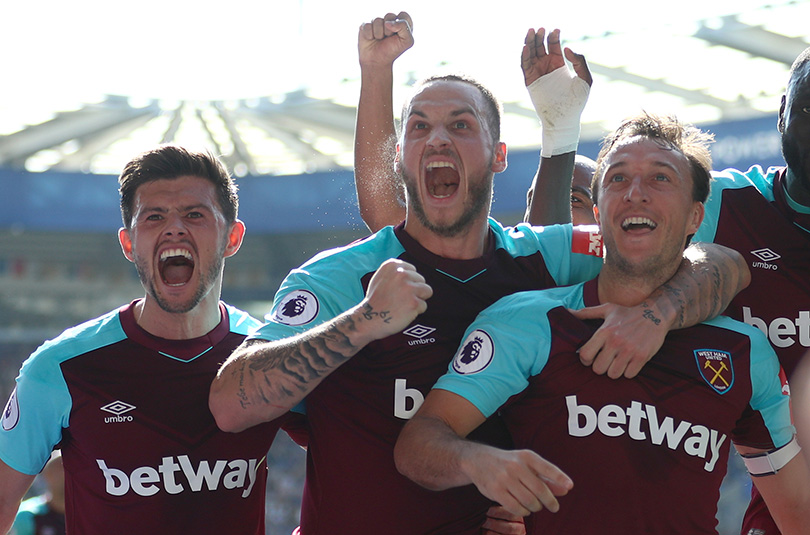
Take Arnautovic’s contributions away from West Ham’s 2018 and they might well have been playing Championship football next season.
He’s a curious player. Moody and hostile, capable of being brilliant and awful in the same week, the Austrian’s form and goals were not only notable for their concentration, but also because they propped up a team who were, in almost every other department, distinctly flawed. In fact, the stranger the atmosphere around the club became, the better he seemed to get. Say what you will about the player’s psychological composition, but there’s little doubting his value.
Worst: Joe Hart
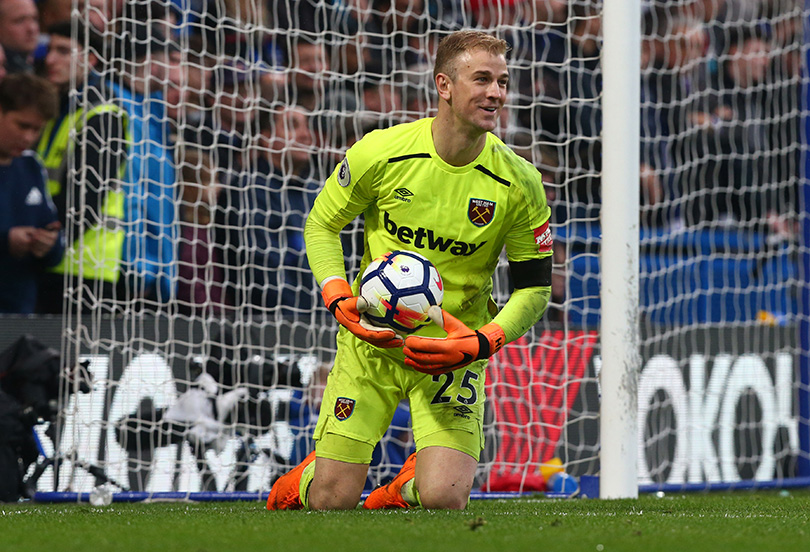
That was hard to watch. Back within a familiar culture and a league he knew, Hart was supposed to reclaim his reputation and firm up his position ahead of the World Cup. Instead, his career has nosedived and all the neuroses on show at Torino have spread. Error has followed error and his dropping in November actually seemed merciful; he looked like a player devoid of self-belief.
Where he goes from here is anybody’s guess, but another season like this one will likely leave his career beyond repair.
Seb Stafford-Bloor is a football writer at Tifo Football and member of the Football Writers' Association. He was formerly a regularly columnist for the FourFourTwo website, covering all aspects of the game, including tactical analysis, reaction pieces, longer-term trends and critiquing the increasingly shady business of football's financial side and authorities' decision-making.
 Join The Club
Join The Club










